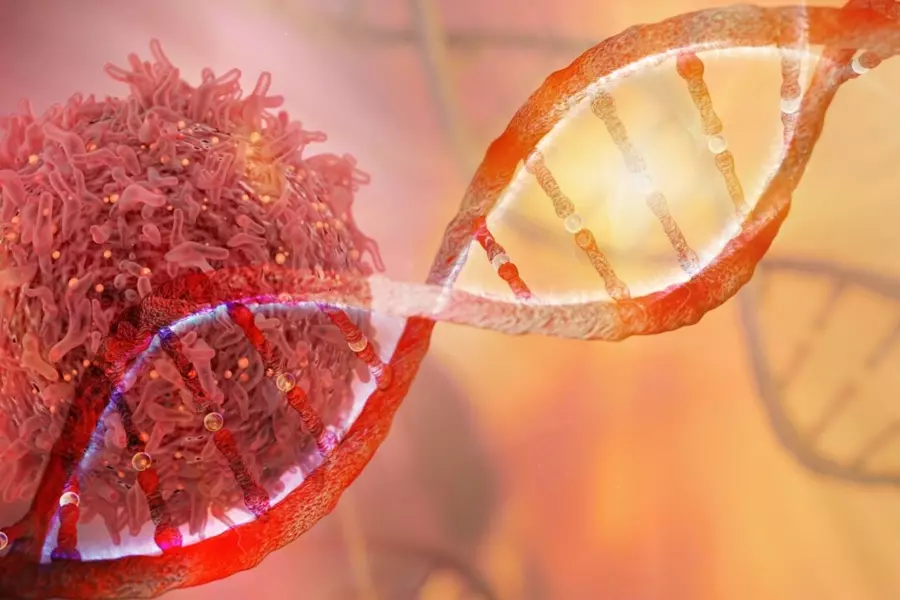The connection between dietary habits and cancer risk has long been a subject of interest for researchers.

A recent study conducted by the National University of Singapore’s Cancer Science Institute has shed new light on this relationship, specifically linking the breakdown of sugar in the body to an increased risk of developing tumors.
The research was led by professor Ashok Venkitaraman and Li Ren Kong, a senior research fellow at the University of Singapore.
The study discovered that a chemical released during the metabolization of sugar can suppress gene expression, preventing the formation of tumors.
This chemical is known as methylglyoxal (MGO), which accumulates in cancer cells undergoing active metabolism.
Individuals with poor diets may experience higher-than-normal levels of MGO, increasing their risk for developing cancer and other diseases like diabetes.
BRCA2 is a crucial gene that repairs DNA and helps produce proteins responsible for suppressing tumor growth and inhibiting the spread of cancer cells.
Mutations in this gene are associated with an increased likelihood of developing breast and ovarian cancers, as well as other types of malignancies.
Those with faulty BRCA2 genes are particularly susceptible to DNA damage caused by MGO.
Interestingly, the study found that individuals without a predisposition to cancer also face a higher risk of developing the disease when exposed to elevated levels of MGO.
This suggests that chronic increases in blood sugar levels can compound the overall risk of cancer.
MGO is difficult to measure independently, but early detection of elevated levels may be possible through routine HbA1C blood tests.
These tests are typically used to diagnose diabetes and assess average blood sugar levels over the past two to three months.
The study’s findings could provide a mechanism for detecting early warning signs of cancer development in individuals with high MGO levels.
In patients with prediabetes or diabetes, elevated MGO levels can often be managed through diet, exercise, and medication.
The researchers aim to extend this approach to families with a high risk of cancer, such as those carrying BRCA2 mutations.
While more research is necessary to fully understand the implications of this study, its findings could pave the way for new strategies in mitigating cancer risk.
Dr.
Simpson emphasizes the importance of consuming whole foods and maintaining a low-carb diet to promote cellular health.
He suggests focusing on vegetables, healthy proteins, and fats, as well as fish, eggs, and yogurt, while avoiding processed foods.
In summary, this study has provided valuable insights into the relationship between sugar metabolism and cancer risk.
By understanding the mechanisms through which MGO contributes to tumor formation, researchers can develop more effective strategies for early detection and prevention of cancer in susceptible individuals.
